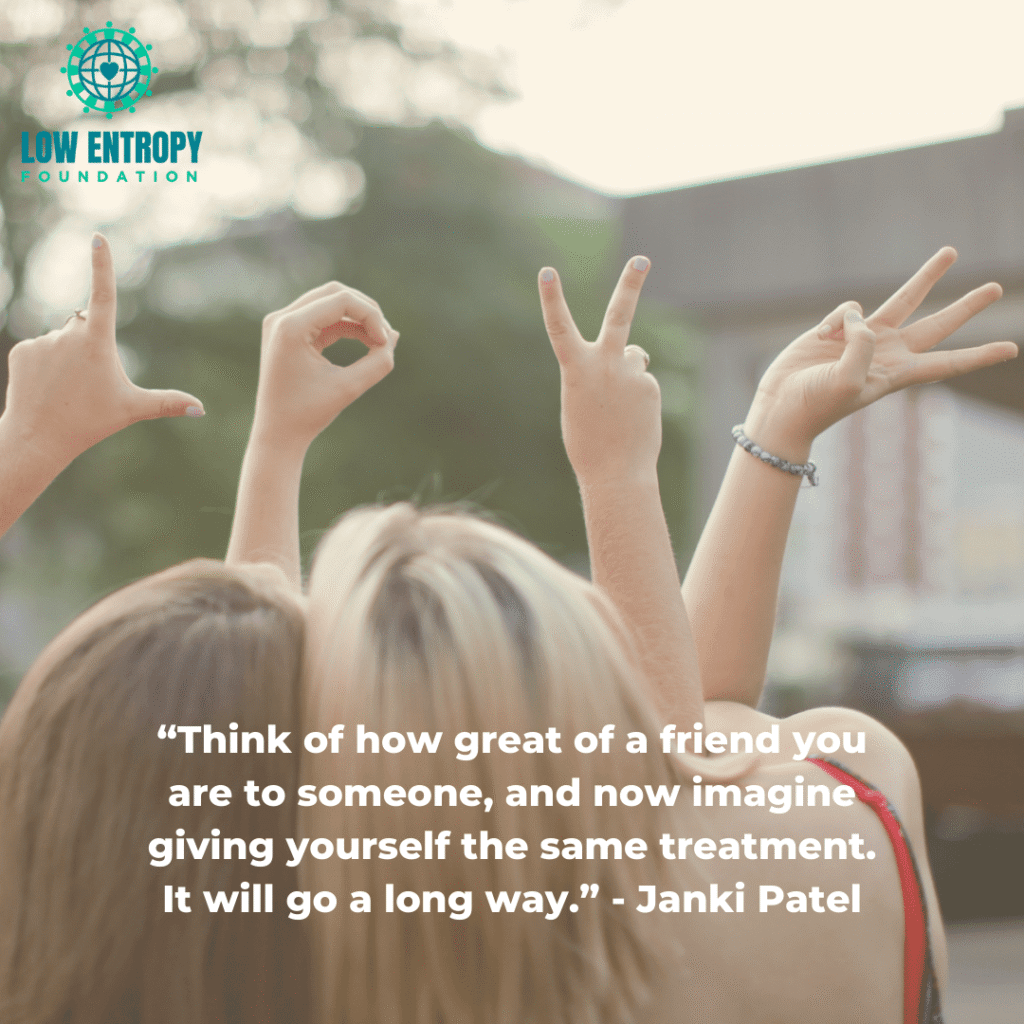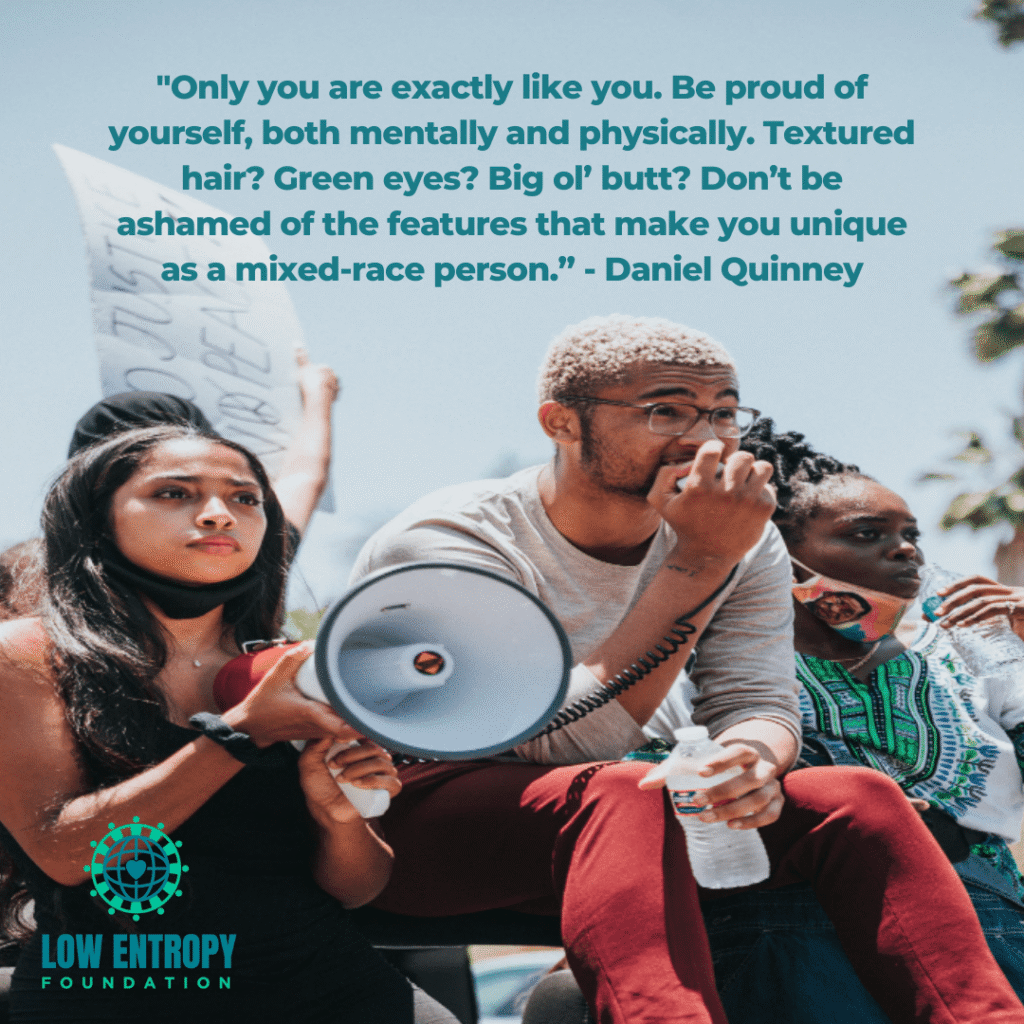Reconstruction

Low Entropy Volunteer Writer Janki Patel always put herself last, until she couldn’t hold herself together any more. Guided by a set of simple principles, Janki shares how she was able to build herself back up. Have you ever given great advice to others but never followed your own? That is the story of […]
Her Performance

We all look different, so why should beauty standards encourage us to be the same? Low Entropy Volunteer Writer Prateek Sur has a story that will hopefully encourage us to shed fat-shaming thoughts and become more body-positive. Actresses in the film and television industry are supposed to maintain a certain kind of image. Not […]
How to Cope with Racial Tension as a Biracial Person (and Take Your Power Back!)

Low Entropy Volunteer Writer Daniel Quinney’s mixed-race background has prompted the same set of conversational questions over and over again, but for a long time Daniel struggled with finding an answer to feeling disconnected and excluded. For anyone who has felt the same way in this increasingly polarized world, Daniel shares some ideas on how […]
With Confidence

Low Entropy Volunteer Writer Alexandra Dadivas emerged from the depths of negative self-talk and peer pressure with the support of a very special person. Now committed to bringing others up with her, Alexandra speaks to the importance of creating a chain reaction of love and positivity. For the past couple of years, my biggest […]
